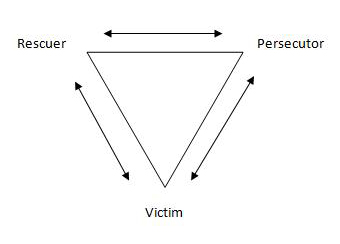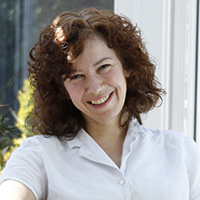Couples counselling in Cheadle, near Stockport and South Manchester
Are you experiencing relationship problems?
All couples experience disagreements and arguing is a normal and healthy part of relationships. However for many couples the disagreements and arguments become habitual and destructive and can result in a breakdown in communication . This can lead to either or both partners in the couple experiencing stress, anger, depression , anxiety and isolation .
There are many life events that can impact on a couple's relationship - eg redundancy, work stress, bereavement, miscarriage, infertility, adultery, infidelity,gambling, addictions, starting a family, children leaving home, retirement, financial worries, being in debt. Also relationships can be impacted by unresolved issues from childhood as well as mental health issues(eg codependency, depression, anxiety disorders).

How can couples counselling help our relationship?
Couples therapy helps couples of all types to resolve conflict and develop their relationship. I welcome couples of all ages, religions and sexual orientation. Couples counselling enables couples to communicate more effectively - allowing them to resolve problems, negotiate differences and even to argue in a healthier way.
Couples counselling can help you
- Learn to listen/communicate/relate better to each other
- Understand ,appreciate and accept each other's needs
- Resolve sexual issues
- Help you identify the conflict within your relationship
What will couples therapy be like?
In couples counselling I will try to get an understanding of both sides of the problem, from both partners. The goal of therapy is to learn how to communicate and relate to each other in a non-blaming way (and that includes not blaming yourself, as well as not blaming your partner).
As a couples counsellor I am non judgmental in my approach - there is no right or wrong. I believe an important part of couples counselling is to accept how the other person feels - we don't necessarily need to understand it. Valuing and accepting your partner's feelings without judgment or blame encourages understanding, trust and closeness.
I believe individual responsibility is important in couples - as challenging the assumptions that lead us into game playing will make us happier and more fulfilled as individuals, whether a couple decides to stay together or not. Also we are all responsible for how we feel , think and behave - your partner may elicit an emotion in you, but it is your responsibility how you respond.
I see couples counselling as a process - where by being vulnerable, reflective, honest and open minded, couples can learn to communicate authentically and be intimate with each other. I believe allowing yourself to be vulnerable and honest without judgment or blame is a strength.
What games are played in couples?
 Games are sets
of ulterior transactions
which are played without awareness and which always end up with each person
experiencing negative, uncomfortable and familiar feelings. They are repetitive
and will always include a moment of surprise or confusion.
Games are sets
of ulterior transactions
which are played without awareness and which always end up with each person
experiencing negative, uncomfortable and familiar feelings. They are repetitive
and will always include a moment of surprise or confusion.
We all play psychological games to some extent, but when game playing becomes habitual and destructive to your relationship, seeing a counsellor can help you to find different ways of getting your needs met.
Games often occur in couples. We seek out a partner to play games with in order to reinforce the life script that we decided in childhood. Game playing is a bid for intimacy, an attempt to get close to your partner. However games invariably end with each person in the couple feeling misunderstood and familiar unresolved feelings from childhood are heightened eg feeling sad, anger or scared.
Games reinforce our childhood decisions about ourselves, others and the world eg 'no one understands me' ; 'I'm not important'; 'I never get what I want'; 'everyone lets me down'; 'I'm better off alone'; 'it's all their fault'etc.
Game playing in couples also confirms our game role. According to Stephen Karpman there are 3 game roles- Victim, Persecutor and Rescuer. In the Drama Triangle game we can alternate between game roles, but people usually have a preferred life position game role, where they experience familiar feelings which reinforce how they see themselves, others and the world.
For example the Victim concludes 'poor me, as usual no one cares about me'(feeling familiar feelings of helplessness); the Rescuer concludes 'I just tried to help them ' (feeling familiar feelings of confusion and not being appreciated)and the Persecutor concludes 'I'll show them '(feeling familiar feelings of blaming, anger and self righteousness).
All 3 game roles involve someone not taking responsibility for themselves eg the Victim looks for a partner to take responsibility for them ; the Rescuer seeks out a Victim to take care of but fails to attend to their own needs as well as minimising the Victim's ability to look after themselves while the Persecutor shifts responsibility by blaming their partner for the difficulties in their life.

How can couples counselling help minimise game playing?
In couples counselling we will expose the games that are being played and look at the ulterior, psychological messages that are being communicated, often non verbally eg through tone of voice, gestures etc.
We will explore the assumptions that each person in the couple is bringing to the game playing. Each person's assumptions will be directly linked to a childhood experience/event where they made a decision about themselves, others and the world around them. Challenging these assumptions can change the neural pathways in our brains.
Underneath these decisions will be unresolved and deep rooted feelings from childhood -eg anger that no one heard them as a child; sadness that they didn't feel important as a child; fear that their parents would leave/overwhelm them. Part of the process of couples therapy will be to grieve and let go of these unmet childhood needs.
During the stress of game playing these assumptions about reality are perceived as facts in the minds of each person in the couple, even though they are not facts. Seeing a couples counsellor will minimise the game playing between you and your partner, as becoming aware of the games you play is the first step to stopping the games.
In couples therapy we will also look at alternative ways of structuring time together where the authentic needs of each person in the couple are heard, recognised, accepted and valued by the other. Practising relaxation techniques like mindfulness, meditation can help either or both partners feel less stressed.


